Niger
Along the dusty alley, new faces appear in the doorways. In Arlit, a mining town in the Agadez region of northern Niger, the massive arrival of migrants from all over West Africa has caused the population to explode.
Behind the earthen walls, women and young girls, mostly from Nigeria, modestly described as "free women". In reality, they are prostitutes who operate with the knowledge of everyone in a country that is more than 98% Muslim.
"The cohabitation with non-Muslims is a bit difficult, especially with these free women. That's what gives this place its bad reputation," concedes Issa, a local shopkeeper.
"We don't have a problem with anyone here," replies Nadya, a prostitute, and mother of two. "I do this for them, I really need the money", says this thirty-year-old woman with a traditional tattoo on her cheeks.
The Agadez region has been experiencing a massive influx of migrants for several years. According to the authorities, the population of the towns has doubled in ten years, with migrants from Algeria and the whole of West Africa, nationals from neighbouring countries attracted by the gold deposits, and Nigeriens from the south of the country.
"The budget of the local authorities cannot support the additional needs in terms of sanitation or school infrastructure, it is beyond our budgetary forecasts," warns the mayor of the town of Arlit, Abdourahamane Mouali. "But since these migrants are here, we have to deal with them, if only from a humanitarian point of view," says this elected official.
In front of the transit center in Arlit, managed by the International Organization for Migration (IOM), Ickbal and Yasmine are waiting for their turn. These Togolese fiancés have bypassed the border posts where thousands of deportees are crammed and find themselves without identity documents. The center is already full and takes in the newcomers in order of vulnerability.
- Criminal networks -
"We have no place to sleep, no food, it's very difficult," blows this student. "I ask our Nigerien brothers for food so I can give it to my fiancée. We are well received, but to ask each time is disgusting," he sighs.
As a historical crossroads between the Maghreb and the Sahel, the Agadez region is renowned for its tradition of hospitality. But the rise of insecurity is creating new tensions.
Although there are no statistics to link this phenomenon to the massive arrival of foreigners in the region, the feeling felt by the inhabitants is very real.
On the road to hell, "it's not easy to go a week without an armed attack. The migrants, they leave us alone, they even respect the law more than the Nigeriens! It is the gold diggers who cause problems," says Issa, a trader.
Gold deposits attract criminal networks in this desert region between unstable countries' borders, a few hundred kilometers from the areas of activity of jihadist groups.
"We have only two checkpoints on 2,000 km of border, and we are not rich enough to monitor with aerial means," says Magagi Maman Dada, the region's governor.
"For the time being, the region is stable, but we don't know how long it will last," said Ibrahim Rixa Issa, 2nd vice president of the regional council.
The main international organization on the ground, the IOM invests in so-called "stabilization" actions for the benefit of local communities: boreholes, hygiene infrastructures, and income-generating activities...
- Decreasing funding -
But the flows are constantly increasing and the transit centers are already saturated. Compared to 2021, "the number of migrants stranded in Niger requesting IOM assistance has increased by 35% in 2022, with more than 17,000 migrants assisted by the Organization," says IOM.
At the same time, funding from international donors is down, according to local authorities.
"For the past year, all the projects have been closing. We are put in an uncomfortable situation vis-à-vis our populations," says Ibrahim Rixa Issa.
In 2015, Niger ratified the Palermo Convention by adopting a law that criminalizes any paid assistance to illegal border crossings and illegal residences on Niger territory.
The law, which aimed to abolish the networks of "smugglers", has brought down a whole part of the economy of this isolated region.



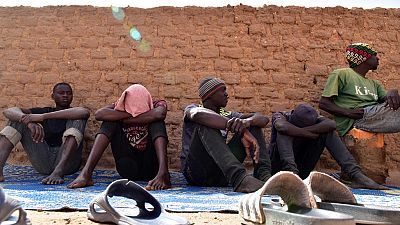

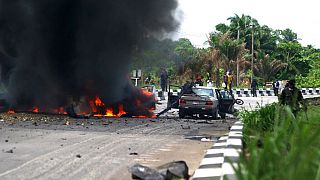


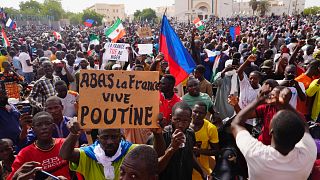
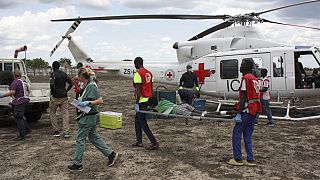
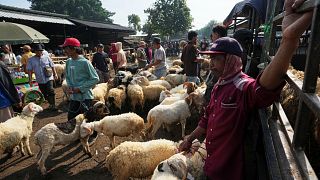



01:00
Pix of the Day: July 3, 2025
Go to video
’Black Empowerment’ law stalls Elon Musk's $113 million investment in SA
01:24
EU to seek tougher measures from Libyan authorities on Mediterranean migrant sea crossings
Go to video
In Kenya, 90% of packaged food needs health warning label under new rules
00:52
Nigeria’s Peter Obi to contest 2027 election, opposition coalition in jeopardy
Go to video
Cameroon’s Tourism Minister joins presidential race as Biya’s silence fuels uncertainty